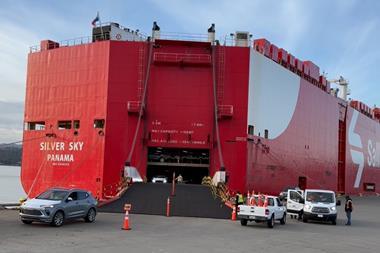
Further details have come to light on the cost-saving alliance announced at the end of February between General Motors and PSA Peugeot-Citroën. According to news service Reuters, GM has made a regulatory filing with the US Securities and Exchange Commission, in which the carmaker states it will pay €320m ($423m) for its 7% stake in PSA and that the term of the alliance, which is designed to save the companies as least $2 billion, will last 10 years.
The Reuters report states that, according to the filing, the companies' strategic cooperation can be terminated if one of GM's competitors buys 10% or more of PSA stock, either directly or indirectly. The deal can also end if the Peugeot family's stake falls below 15% and a competitor comes to own 5% or more of PSA. The alliance can also end if another automaker buys 3% of PSA through a deal with PSA or the Peugeot family.
The GM-PSA alliance has two principal goals: the sharing of vehicle platforms, components and modules; and the creation of a global purchasing joint venture for the sourcing of commodities, components and other goods and services from suppliers with combined annual purchasing volumes of approximately $125 billion. Each company will continue to market and sell its vehicles independently and on a competitive basis.
The companies have stated that they are jointly exploring areas for further cooperation, such as integrated logistics and transport, and GM has said it will establish a relationship with Gefco for the provision of logistics services in Europe and Russia.
The carmakers remain unwilling to comment more on the specific opportunities for logistics sharing at this stage but the benefit is that, with Gefco's infrastructure and networks already formed, these can be exploited to GM/PSA advantage and implemented relatively quickly.
The carmakers stand to be benefit from the consolidation of production and logistics in Western Europe, which is now characterised by overcapacity, allowing them to realise the economies of scale that are critical for just-in-time management.
Beyond that, the potential benefits for the carmakers of Gefco's expanding global presence, and in the BRIC markets in particular, could still be some way off. "Even if they do insist on this, the [GM-PSA] alliance is first of all rooted in the fact that both PSA and Opel are at risk in Europe," said Carlos Da Silva, senior market analyst for Automotive Analysis and Forecasting at IHS Global Insight. "Having a major logistics player in-house is definitely an asset for any real development, in or outside Europe, but I don't think that it is because they are good at logistics that they will sell more outside Europe. First they need products that are going to be recognised by customers," he said.
Read more about developments at Gefco and the GM/PSA alliance in the forthcoming April-June edition of Automotive Logistics magazine.



































